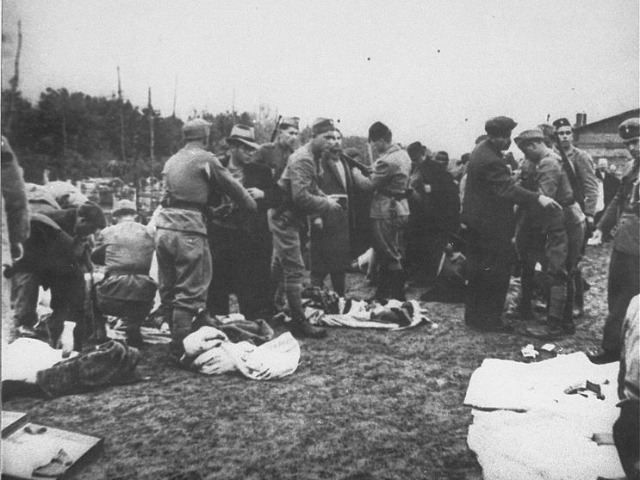Croatia Threatened with Lawsuit by Wwii Victims
By Sven Milekic
US lawyer Jonathan Levy said on Monday that he will lay charges against Croatia if it fails to back claims against the Vatican Bank made by victims of the Croatian WWII fascist Ustasa movement. Certain people in the Vatican allegedly sponsored the exiled Ustasa government after WWII and helped to transfer parts of its treasury – partly created from wealth taken from Serbs, Jews and Roma – to the Vatican Bank. Levy took the ‘Ustasa treasury’ case to the US courts, but lost in 2010, with judges concluding that they had no jurisdiction over the matter. He has now appealed to the Croatian government’s newly-formed Council for Dealing with Consequences of the Rule of Non-Democratic Regimes, asking it to support the Ustasa victims. Levy claimed in his appeal that Croatia “has done nothing tangible to aid the Ustasa victims and their families in obtaining an accounting of the Ustasa treasury”, but has given former Ustasa soldiers state pensions for their war merits. The director of the Nazi-hunting Simon Wiesenthal Centre, Efraim Zuroff warned Croatia in May 2015 that these pensions to former Ustasa troops were an insult to victims of Croatia’s wartime pro-German regime. According to the Croatian pension insurance institute, in 2013 Zagreb paid out pensions to 13,000 former soldiers and policemen of the Ustasa-led Nazi-aligned puppet state Independent State of Croatia, NDH. Levy said that if the new Council did not support the victims, he will appeal to the European Court of Human Rights, and inform the European Commission and the European Parliament. “Should the Council which is the highest organ of the Croatian government with jurisdiction over the Ustasa legacy fail to act, legal action will be commenced under European legal regimes seeking compensation and/or an order compelling Croatia to cease its illegal discrimination against the victims of the Ustasa,” he wrote. He claimed that by paying pensions to former NDH troops from 1993 onwards, the government “has been discriminating against victims of the Ustasa”, notably Serbs, Jews and Roma, as well as against anti-fascists. Levy asked Croatia to stop “its illegal discrimination against Ustasa victims and their families and take positive actions to assist them in recovery and accounting of the Ustasa treasury”. He said Zagreb should call for “a conference of the responsible parties including Germany, Italy, the Vatican and the United States and request an accounting of the Ustasa treasury from the Vatican”. But Ante Nobilo, an experienced lawyer in international humanitarian law, told BIRN that he believed there was no great threat of a lawsuit against Croatia. “But it’s also a fact that this puts Croatia in an unpleasant situation. In principle, Croatia would have to be interested in its WWII Ustasa victims – regardless of their religion and nationality – exercising their right to get back their assets, if it’s correct that they ended up in the Vatican Bank and if there is relevant evidence supporting the fact,” Nobilo said. However, he emphasised that it “can’t be expected that Croatia will support such a claim” if it thinks there is not sufficient evidence to support the allegations. Nobilo argued that although “this may be seen as a provocation, it’s a provocation Croatia asked for”, because of its lenient approach towards the legacy of the NDH, or by paying pensions to former NDH soldiers. He also argued that there is no legal basis for paying these pensions, not only because “Croatia isn’t NDH’s successor, but also since Yugoslavia was occupied during WWII and occupation, according to international law, doesn’t change previous intra-state affairs”. Levy also told BIRN last week that a separate 3.2 billion euro lawsuit against Croatia for property seized by its Nazi-allied WWII regime was ‘invalid’ because it was filed without the consent of the plaintiffs. The Ustasa movement targeted Serbs, Jews and Roma, by killing them, sending them to Croatia-based and Nazi German camps, and by confiscating their property and belongings.
|
.
Any original material on these pages is copyright © BishopAccountability.org 2004. Reproduce freely with attribution.
